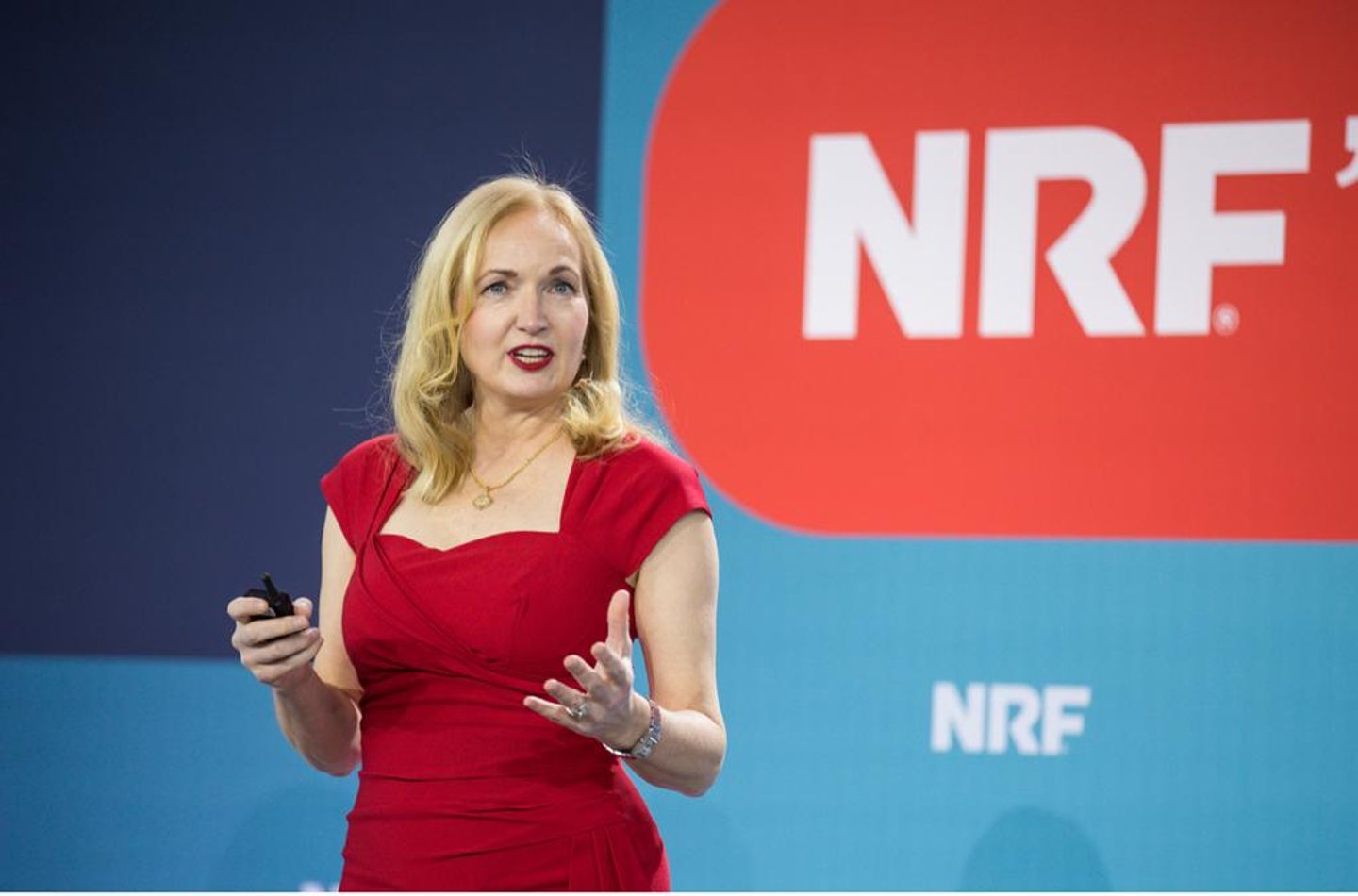Business futurist Kate Ancketill on the big disruptors and trends retailers need to watch
In her NRF ‘24 session “Modern Retail is Rocket Science – How Can We Deal with the Complexity?” this week in New York, futurist and trends expert Kate Ancketill spoke of the forces impacting retail from conflict to climate change to what she called a “demographic time bomb.”
“I don’t know if it surprises you as much as it surprises me, but since 2011, more diapers have been sold in Japan for the elderly than are sold for babies, which for me, really just drove things home,” said Ancketill, founder and CEO of London-based business futurist consultancy GDR. She noted that 23 countries are on-track to halve in population size by the end of the century. “This is impacting everybody, particularly industrialized nations today, and it changes economies.” Fewer products are sold to older customers and there will be fewer workers – more automation will be needed.
Another big disruptor, said Ancketill, is that two-thirds of people around the globe feel that they’re getting poorer and this is impacting their spending. “I believe that we’re coming to the end of linear consumption as the dominant economic model. I think we’re moving in the direction of circularity, which is essential for the planet.” There are already plenty of examples of this; for instance, she noted that within online giant Alibaba’s ecosystem is a website, Idle Fish, which is dedicated to second-hand items, and that in world of apparel the second-hand clothing market is set to be twice the size of fast fashion by 2030.
READ: How retailers like Kroger and Jacksons Food are using AI to combat theft
“We, in the retail industry, are going through the age of transformation, as is every business on the planet,” she said, adding that we need to move from this “end of abundance,” and dismantle our systems and processes, which is happening now, and continue with the mass evaluation of AI with testing and prototyping over the next three years. “Then we’re moving towards reconstruction, towards the end of waste and greater productivity, which is something, obviously, the retail industry, all industries, desperately need.”
Here are three trends GDR’s Anckertill believes will fuel this transformation:
Consumer guardianship
The world is moving away from the age of unconsidered mass consumption, “obviously the climate can’t cope,” said Anckertill. “We are moving towards a much more considered situation.” Consumers want the option to buy new or second-hand, to rent, subscribe or sell products and retailers will have to make that possible."
Empathic AI
Modern life is too complicated to manage without an intelligent digital co-pilot, according to Anckertill. “We’re moving towards a world where we could have more business models based on the idea of conversational, unscripted, intelligent agents communicating with us as if they were a real person. And empathic, I think, is the important word here,” she said. We’re already seeing mass adoption of conversational assistants (142 million people in the United States are already using Alexa or Google Home). “In the last few months, we’ve had multi-modal AIs for the first time in human history. They can help us out with stuff across video, text, audio, code, voice, everything. And we need that help.” There is also a huge, unmet need for coaches, therapists and companions to deal with the current epidemic of anxiety and loneliness – AI can help with this, too. In the near future, every person and brand will have their own AI, she predicts.
Reality check
We’re moving towards a “post-truth” era where 78% people globally feel that as a society we no longer agree on what is and isn’t true (according to Ford Trends 2024 survey). More misinformation will spread online opening the possibility of reputational damage to people and corporations. In this post-truth era there will be a counter movement towards the real, and there will be a greater need for emotionally amplified, physical, immersive experiences in the real world. “If you can’t trust things online, you can definitely trust things that are real, and that you are experiencing."




